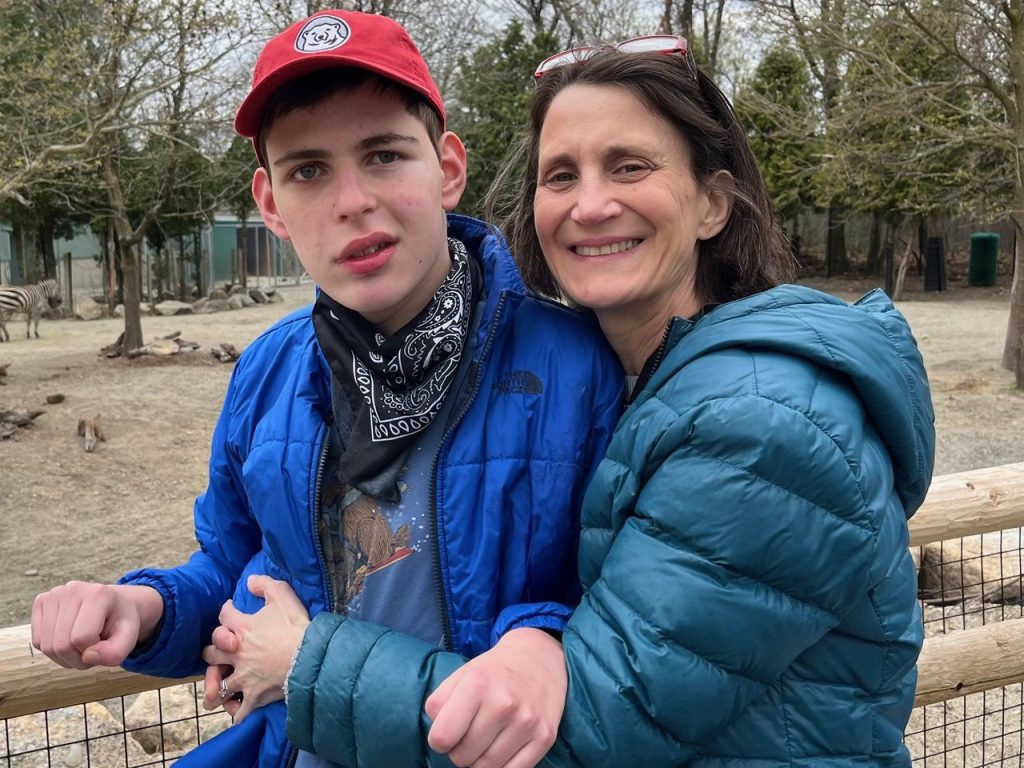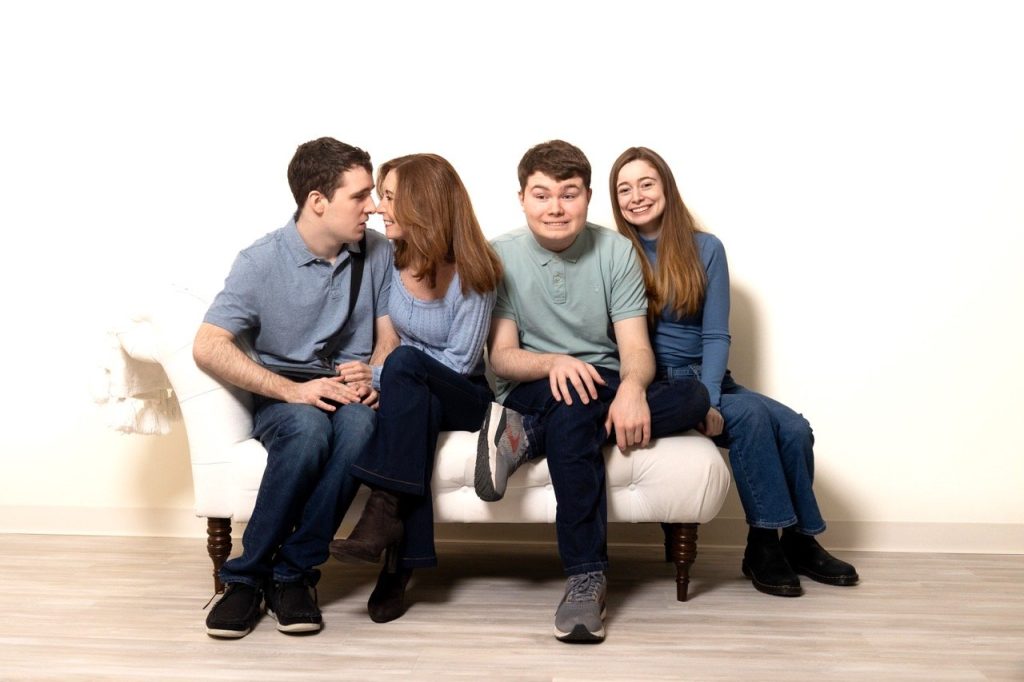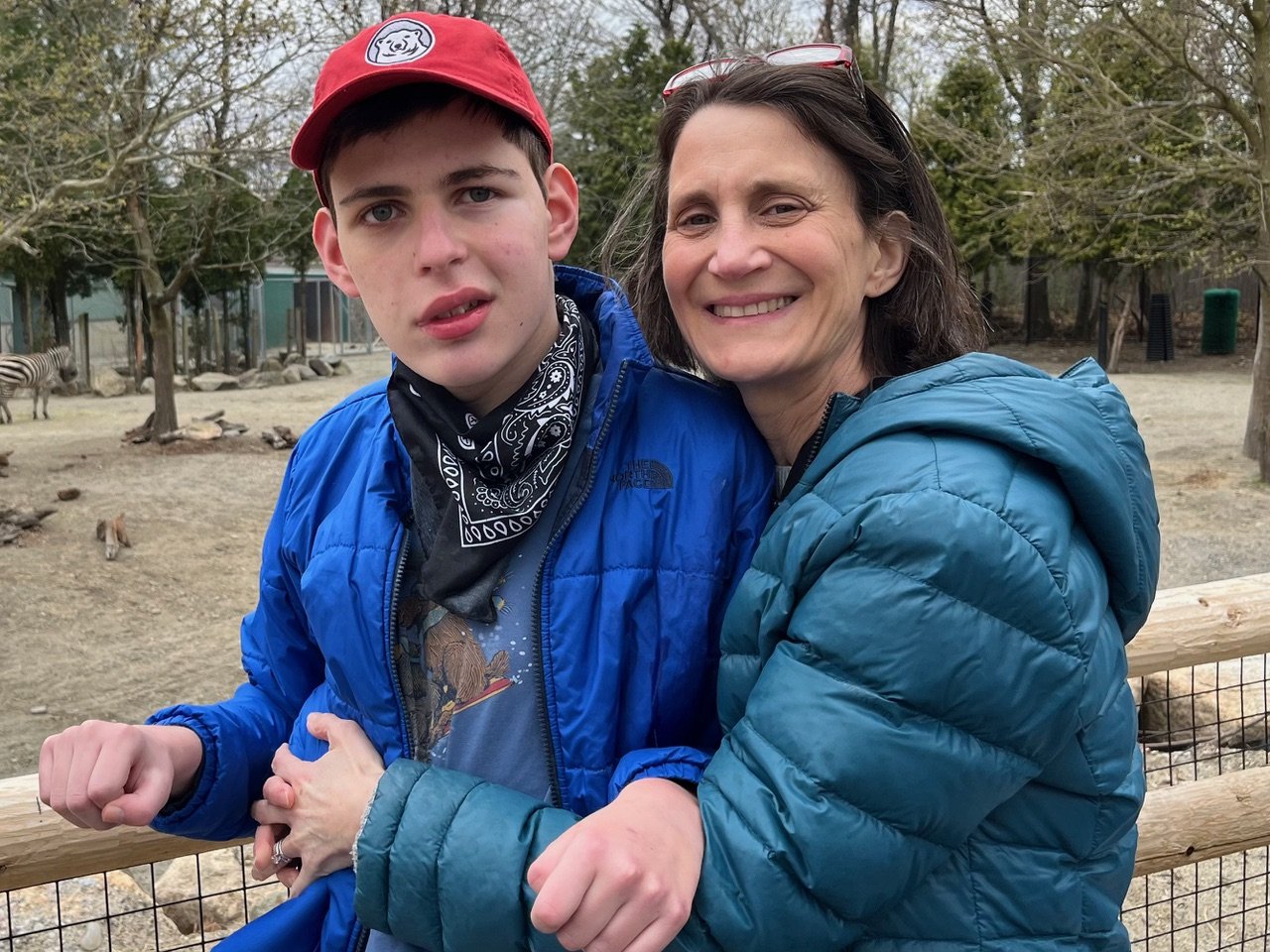TGEC is working with Operation House Call
October 16, 2024

Stephanie Lowell and her son
TGEC has been working with Operation House Call to promote the use of this program in medical schools across the country. Please let us know if you would like us to get more informatio to a medical school in your area. Below is an article by Stephanie Lowell and Maura Sullivan that was published in Helem: the Journal of Human Exceptionality. (helenjournal.org)
By Stephanie Lowell and Maura Sullivan
Imagine you are a doctor and into your office walks in an individual with an intellectual or developmental disability (IDD). Maybe they are making loud noises, or grabbing books off your shelf, or rocking in place, or actively avoiding eye contact. Do you feel uncomfortable? Unsure how best to engage? Or are you confident that, based on your medical training, you will get to know this patient as a whole person, find ways to communicate together, and ensure they get the best treatment possible?
In a recent survey of 714 Massachusetts physicians across various specialties, only 40% reported being very confident treating patients with physical or intellectual disabilities. Another study found that 77% of physicians reported only poor or fair ability to care for autistic individuals.
Perhaps this should not be a surprise. Given current educational standards for medical school, students can graduate, become practicing doctors, publish research, and teach or mentor future medical students without having met or treated an individual with IDD along the way. We are on a mission to change that reality.
“Operation House Call is working towards a healthcare system where all future doctors and other medical professionals are well prepared by their training to provide high-quality, equitable healthcare for individuals with IDD.”
At Operation House Call (OHC), a health equity program of the Arc of Massachusetts, we are working towards a healthcare system where all future doctors and other medical professionals are well prepared by their medical training to provide high-quality, equitable healthcare for individuals with IDD, including autism. OHC teaches young medical professionals (including students studying to become doctors, nurses, and physical or occupational therapists) the essential skills and mindsets necessary to enhance the healthcare of individuals in this marginalized population.
OHC has been a popular and valued program since 1991, initiated by two professors of medicine at Boston University, including a pediatric neurologist whose brother is autistic. Over time, the program has expanded to include every medical school in Massachusetts – Boston University School of Medicine, Tufts University School of Medicine, UMass Medical School, and Harvard Medical School—as well as other medical programs including the Simmons School of Health Sciences, UMass Graduate School of Nursing, and the Yale University School of Nursing. We now reach over 1000 students per year in Massachusetts alone and continue to grow and expand our impact each year.

Maura Sullivant and her family
OHC engages families, parents, and individual self-advocates of all ages, as educators, providing a rare and important training opportunity for future medical professionals. Maura Sullivan, Deputy Executive Director of the Arc of Massachusetts, also the parent of two boys with autism, has led the program for the past 13 years. For Maura, “the opportunity to teach doctors comes out of my passion for working to build a medical team that understands my boys, including the behaviors that come along with their autism. My aim is to build confidence and compassion in every student. Over time, we have impacted thousands of students, and many are now true champions for people with autism and IDD.”
Through OHC, students begin to build skills, learn ways to communicate more effectively, and break down implicit biases in working with individuals with IDD and their families. A fundamental premise of the program is that we teach based on the lived experiences of families and individuals. Students attend a classroom didactic session taught by a combination of two-parent instructors and an individual self-advocate co-teacher, who share their stories of navigating the healthcare system and engage in Q&A with the students. After the classroom session, students are matched with our network of over 200 families for home visits, where they spend an hour or more getting to know the family outside of the constraints of a clinical encounter. Finally, they synthesize their learning through written reflections on the experience, receive feedback from our OHC team, and debrief with their peers in an additional, student led class session.
The classroom curriculum and home visits focus on key themes that impact student learning. These include recognizing and overcoming bias, building trusting relationships through effective communication skills, and avoiding the trap of diagnostic overshadowing (i.e., assuming that certain presentations are “just part of the autism or the syndrome” without considering whether they are a reaction to pain, or part of a different medical challenge). Families also talk about building community, challenges accessing resources or services, the impact of intersectionality, or the transition to adult care. Students also learn about family members’ strengths, passions, and successes, and how trusting relationships with medical providers can make an enormous difference in quality of life.
Feedback from students makes it clear that the personal storytelling approach has an incredible impact on their learning. As one student shared in their feedback after the OHC class, “It was so powerful to hear directly from people impacted by IDD.” Another noted, “this was by far the best didactic session I’ve had throughout all of third year.”
The experiential learning, and the home visits in particular, provide students such a unique opportunity to learn about the whole person in front of them – not just their diagnosis or behaviors but about their lives, their strengths and interests, their fears and hopes and aspirations. We strongly believe that even years later, when the students are out practicing medicine, or nursing, or PT, they remember our families, stories, and become champions of our efforts. As one student wrote in their reflection: “This conversation serves as a powerful call to action for society to reassess its attitudes, policies, and practices, ensuring that individuals with special needs are seen, heard, and valued in all aspects of life.”
Our growth has been slow and steady over the years. It has taken consistent advocacy and partnership to convince medical programs to allocate time and space in their intense curriculum calendar. At times, students – often students with a personal connection to a friend or family member with autism or IDD – have helped pave the way. For example, an amazing student at UMass Chan Medical School helped bring OHC to UMass first as an elective class, and now it is part of the core curriculum in both the medical school and the school of nursing.
In July of last year, Massachusetts passed a bill that codifies our program into law, enabling medical schools to be certified for having incorporated the OHC curriculum into their training. It passed due to the tireless efforts of The Arc of Massachusetts and the OHC team, our family advocates, dedicated legislators, and powerful testimony from “OHC alumni” who shared the incredible impact that going through the program had on their approach to practicing medicine.
We are working towards a future where this learning experience is part of every medical student’s training, and our next generation of healthcare providers are ready and willing to provide equitable, quality care to all patients, including those with autism and IDD.
If you are interested in learning more about Operation House Call, please reach out to: slowell@arcmass.org
Original Article: https://helenjournal.org/july-2024/medical-training-that-promotes-equitable-healthcare-for-individuals-with-idd
